Vietnam welcomes ASEAN chair status
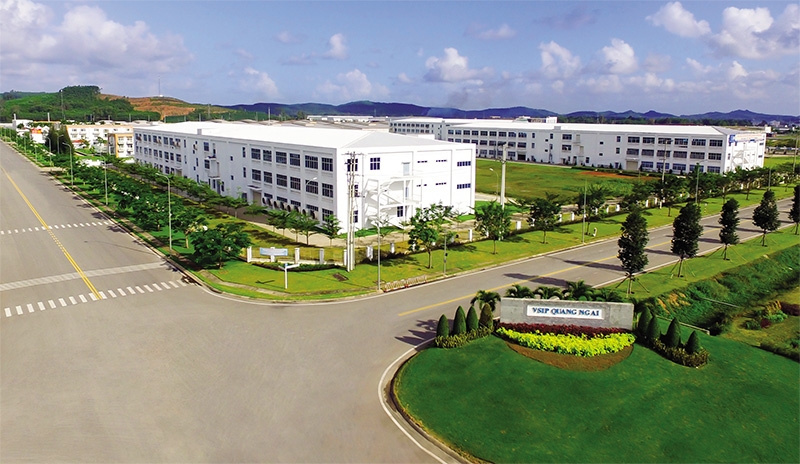 |
| Over the past years, Southeast Asian investment into Vietnam has contributed to improving national development (Photo: Le Toan) |
Vietnam will officially undertake its role as ASEAN chair on January 1, 2020, but will recive the position in early November, the third time it has held the responsibility after 1998 and 2010.
“Acting as ASEAN chair will be the responsibility and the benefit of the Vietnamese country and its people,” stated Deputy Prime Minister, Minister of Foreign Affairs Pham Binh Minh at a recent meeting of the 2020 ASEAN National Committee.
According to DPM Minh, over past decades the ASEAN has been growing from strength to strength, but it has not all been plain sailing.
What is most important is that the ASEAN needs to ensure its great solidarity and maintain its central role in overcoming all challenges and effectively responding to all rapid changes and complexities of the international situation.
Major contributions
On the sidelines of Japanese Emperor Naruhito’s coronation ceremony last week, Prime Minister Nguyen Xuan Phuc had bilateral meetings with leaders of Czech Republic, Bulgaria, and Albania. They wished to strengthen co-operation with Vietnam in international and regional forums, particularly when Vietnam will undertake the role as ASEAN chair in 2020 and non-permanent member of the United Nation Security Council (UNSC) for the 2020-2021 tenure.
PM Phuc stated that Vietnam attached special importance to the new roles, and has been making great preparations for them. In the role of ASEAN chair, the country stands ready to be the effective bridge to connect the ASEAN with countries such as the Czech Republic, Bulgaria, and Albania.
According to Tran Viet Thai, deputy director general of the Institute for Foreign Policy and Strategic Studies under the Diplomatic Academy of Vietnam, in 24 years of being an ASEAN member, Vietnam has continuously contributed to the unity of the region, and the job has been highly appreciated by the international community.
“Interaction among ASEAN countries and their people has been increasing,” Thai said. “It’s clear that ASEAN has become more stable with closer relations among people. And it’s also the commitment of Vietnam to the future of the ASEAN, particularly in the role of ASEAN chair.”
Over the past quarter of a century, the country has headed numerous initiatives to help develop the ASEAN into a stronger bloc.
For example, at the 33rd ASEAN Summit and related meetings in Singapore last November, PM Phuc reiterated Vietnam’s initiatives on a regional digital platform, a cross-ASEAN mobile network, and establishing the ASEAN Technology University and a regional disaster alert system.
The Vietnamese prime minister also regarded the small- and medium-sized enterprise community as “the backbone of the ASEAN economy,” and recommended establishing a talent incubator, saying that a startup atmosphere is truly permeating the region as “The ASEAN is known as the cradle of many new and innovative ideas from around the world.”
As part of its boosting of regional integration, Vietnam has also created good opportunities for regional enterprises, with those from Indonesia, Malaysia, the Philippines, Singapore, and Thailand operating well in Vietnam.
Statistics from the Ministry of Planning and Investment showed that as of September 20, the total investment from ASEAN member states in Vietnam hit about $74.12 billion, with Singapore’s total at $49.9 billion, followed by Malaysia ($12.6 billion), Thailand ($10.8 billion), Indonesia ($579 million), and the Philippines ($276 million).
What to do?
Emphasising the ASEAN’s orientation of people at its centre, Thai from the IFPSS said that Vietnam’s priorities in 2020 as ASEAN chair will aim to building a community for people, serving them with the increasing participation of ethnic minority groups, women, and children.
“In its ASEAN 2020 chairmanship, Vietnam will pay more attention to issues of workforce, jobs, and social security, to support these groups, so that they can better benefit from the ASEAN community, so that the bloc is closer and closer to people wherever they are,” he said.
Pham Quang Vinh, former Deputy Minister of Foreign Affairs recently told VIR that the ASEAN has maintained a peaceful and stable environment favourable for economic development and connectivity, as well as community building.
“In the midst of uncertain and changing regional dynamics, US-China strategic competition, the territorial and maritime disputes in the East Sea, and growing non-traditional security concerns, internal and external issues may distort ASEAN cohesiveness and undermine its centrality,” Vinh said. “With that background, Vietnam’s priorities will be based on the ASEAN’s three pillars of politics, economy, and culture and society. The ASEAN has a route map for this, so Vietnam will continue with the things the blocs has not yet finished.”
Supporting Vietnam’s new role in the ASEAN, Indonesia’s Former Minister of Foreign Affairs Marty Netalegawa said that it is “extremely encouraging to see Vietnam taking the chairmanship of the ASEAN. In late 2018, Vietnam established an ASEAN committee and now the country has been actively building plans,” he said.
According to Netalegawa, the activity of Vietnam has shown that for the country, the issue of being ASEAN chair is not only a technical issue of organisation but also one about policy. “Seeing what Vietnam is doing gives me a great deal of encouragement and hope that the ASEAN will benefit fully from the country’s new position.”
The year 2020 will mark the 50th anniversary of the ASEAN Community, and is the period being set aside to launch action programmes with the bloc’s partners. Besides that, Vietnam will also celebrate 25 years of ASEAN membership. Undertaking ASEAN chair on the occasion will help Vietnam affirm its position and role to the region, contributing to actualising the ASEAN’s goal of being a community for people.
According to Article 31 of the ASEAN Charter, the chair role of the ASEAN rotates annually, based on the alphabetical order of the English names of member states.
To prepare for the role in 2020, Vietnam established the ASEAN National Committee in December 2018 chaired by DPM Minh. The three vice chairmen are Minister, Chairman of the Government Office Mai Tien Dung, Minister of Industry and Trade Tran Tuan Anh, and Minister of Labour, Invalids and Social Affairs Dao Ngoc Dung, along with 25 other leaders of relevant ministries and agencies.
At the committee’s fourth meeting session held two weeks ago, Deputy Minister of Foreign Affairs Nguyen Quoc Dung stated that careful preparations for Vietnam’s new task have been made. The committee also approved the logo and identifier of ASEAN Chairmanship 2020 which will be officially introduced at the 35th ASEAN Summit 2019 and related meetings in Thailand during October 31-November 4.
 |
| PHAM BINH MINH - Deputy Prime Minister
Over the past 50 years, from a war-torn and poor region, the ASEAN has developed strongly, becoming a successful model of peace, co-operation, and development. Each ASEAN member has been making great efforts in realising the strategic goals set out in the Declaration on ASEAN Community Vision 2025 on ensuring peace, security, and long-term resilience with an active, competitive, and intensively-connected economy based on a strong sense of cohesive and common features. With its increasing central role, solidarity, and prestige the ASEAN is becoming stronger and stronger, and expanding its multi-faceted relations with powerful countries and regional and global partners in order to materialise shared goals on peace, stability, and equal and sustainable development. For Vietnam, the ASEAN is a priority in its foreign policy. As ASEAN chair in 2020, Vietnam will continue its close co-operation with the bloc’s member countries to effectively accomplish the ASEAN Community Vision 2025 in the spirit of solidarity, dynamism, and creativity, including the wide participation and active contribution of all people in the region. With all effort and determination, we will together create new momentum for the next journey of the united, strong, and dynamic ASEAN Community. Lim Jock Hoi - Secretary-general, ASEAN
Being elected as a non-permanent member of the UNSC in the 2020-2021 tenure has shown recognition of Vietnam’s contribution to the international community. As ASEAN chair in 2020, the country is to implement new initiatives to strengthen the bloc. Vietnam needs to take advantages of the growth momentum that the ASEAN has achieved through initiatives in previous terms, which will help strengthen solidarity as well as enhance its ability to respond to regional and global challenges. In this position, Vietnam will play an important role in negotiating and I hope that signing the Regional Comprehensive Economic Partnership can be completed during Vietnam’s term. Vietnam can pay attention to maintaining the ASEAN as a region of peace and security, and developing human resources with strategic programmes, ensuring that they are provided with sufficient resources to implement them. Dato’ Shariffah Norhana Syed Mustaffa - Malaysian Ambassador to Vietnam
We are at the halfway mark of when the ASEAN first agreed on its Vision 2025, Forging Ahead Together. The vision speaks of the ASEAN Community in 2025, with clear political security, economic and socio-cultural blueprints, as well as the Initiative for ASEAN Integration Work Plans and the Master Plan for ASEAN Connectivity. Being at the halfway mark of these lofty yet tangible targets, Vietnam could take advantage of where we are and how much we have achieved in progressing this vision. Vietnam as the new ASEAN chair could steer the vision in the right direction as well as set the pace for the second half of the ASEAN’s activities and programmes in achieving it. With its fast economic growth, and its graduation from having development gaps to being one of the more advanced regional economies, Vietnam has that experience and know-how to facilitate the acceleration of narrowing development gaps between all 10 ASEAN member states. Ibnu Hadi - Indonesian Ambassador to Vietnam
As chair of the ASEAN in 2020, there are a lot of targets that should be met, not only in political and security issues but also in economic as well as in socio-cultural co-operation. On the other hand, as a non-permanent member of the UNSC together with Indonesia, we believe that we can co-operate with each other to handle global political and security issues, aiming towards a better world. Over the years, Vietnam has shown the world its impressive achievements in terms of economic growth and social development. It can not only show the rest of the world its abilities but also share its perspectives with other ASEAN countries and the wider world. We have seen the persuasive example of Vietnam’s successful organisation of many international events. I believe that as the new chair of the ASEAN and a non-permanent member of the UNSC, Vietnam can contribute well to the world. Morten Høglund - Norwegian Ambassador to ASEAN
Vietnam is a dynamic and open economy and has a lot of experience to lead the ASEAN and be an example for other countries. I expect the country to be a professional, dedicated, and aspiring ASEAN chair. Norway has established diplomatic relations with many ASEAN countries, including Vietnam, with a history of nearly half of century. However, Norway is a relatively new partner of the ASEAN. I do hope that Norway can work together with Vietnam to promote regional priorities. The year 2020 is also when Norway celebrates five years of being the ASEAN’s dialogue partner. The relationship between the two has been and will continue to develop in the future, in areas from political security to economics. Nguyen Quoc Dung - Deputy Minister of Foreign Affairs
In the role of ASEAN chair, we can contribute better to the activities of the UNSC. Vietnam’s voice is the point of view of all ASEAN members, helping the United Nations have a better outlook on the region. As a member of the UNSC, which means holding an important global position, we can help the ASEAN’s priorities under our chairmanship to be carried out better and with a stronger support from the international community. Some people will think that being a non-permanent member of the UNSC just makes us hard-working. But actually, being responsible for global issues will create important prestige, and foster our voice and role in the world. Thanks to these, we can develop our bilateral relations and increase our role in multilateral forums. Then, we can gain those national benefits. Peter Girke - Chief representative Konrad-Adenauer Stiftung (KAS) in Vietnam
KAS has good relations with ASEAN nations. The ASEAN has stated its mission to emphasise building the identity and the central role of the bloc, which aims to build another pillar, the human pillar, with an emphasis on people-centred politics. Moreover, the ASEAN Community Vision 2025 is also aimed to build a people-centred community and to strengthen solidarity and unity among member countries. Vietnam’s experiences will certainly benefit ASEAN as the country takes on the role of ASEAN chair for the third time. Vietnam is an active member in regional and worldwide integral activities, and the nation is open to learn from past experiences and practices of the region and the world, where openness and integration are two very important factors. |
What the stars mean:
★ Poor ★ ★ Promising ★★★ Good ★★★★ Very good ★★★★★ Exceptional
Related Contents
Latest News
More News
- Russian President congratulates Vietnamese Party leader during phone talks (January 25, 2026 | 09:58)
- Worldwide congratulations underscore confidence in Vietnam’s 14th Party Congress (January 23, 2026 | 09:02)
- Political parties, organisations, int’l friends send congratulations to 14th National Party Congress (January 22, 2026 | 09:33)
- 14th National Party Congress: Japanese media highlight Vietnam’s growth targets (January 21, 2026 | 09:46)
- 14th National Party Congress: Driving force for Vietnam to continue renewal, innovation, breakthroughs (January 21, 2026 | 09:42)
- Vietnam remains spiritual support for progressive forces: Colombian party leader (January 21, 2026 | 08:00)
- Int'l media provides large coverage of 14th National Party Congress's first working day (January 20, 2026 | 09:09)
- Vietnamese firms win top honours at ASEAN Digital Awards (January 16, 2026 | 16:45)
- ASEAN Digital Ministers' Meeting opens in Hanoi (January 15, 2026 | 15:33)
- ASEAN economies move up the global chip value chain (December 09, 2025 | 13:32)

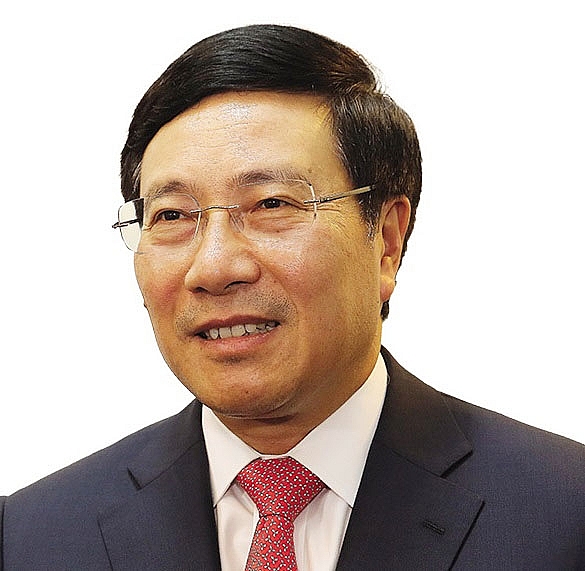
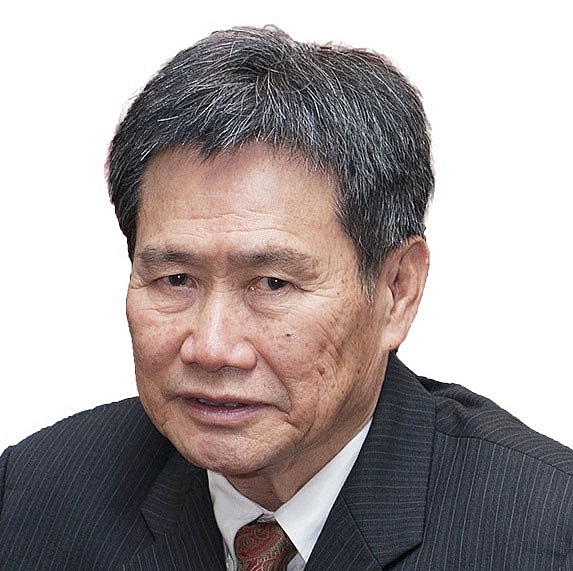

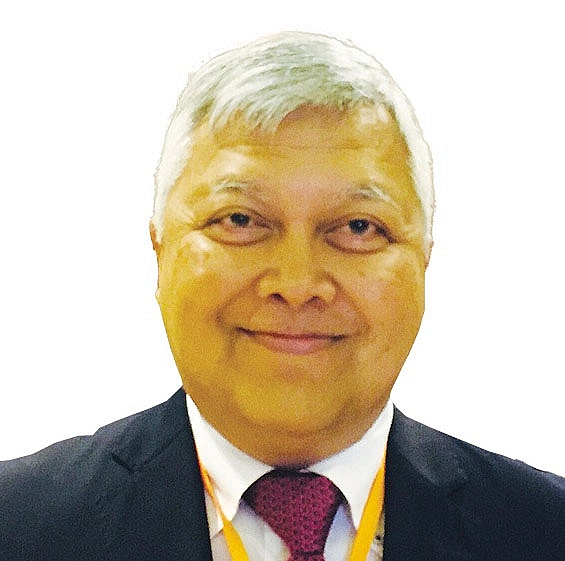

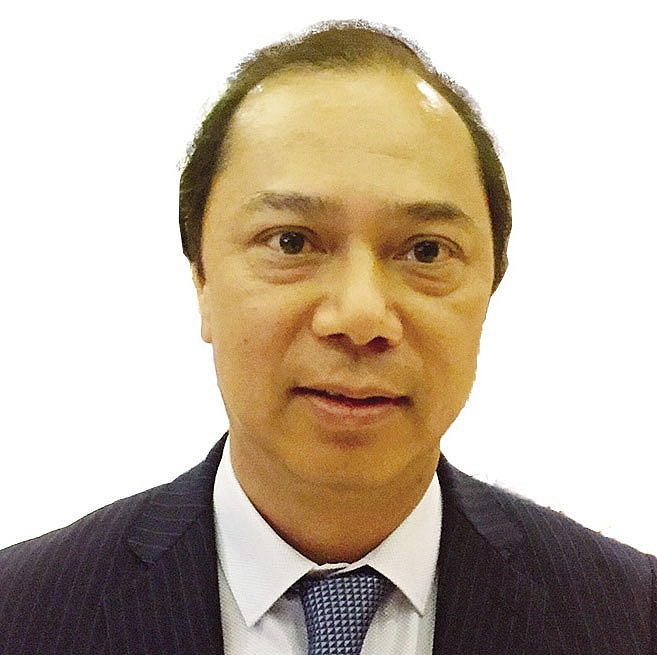
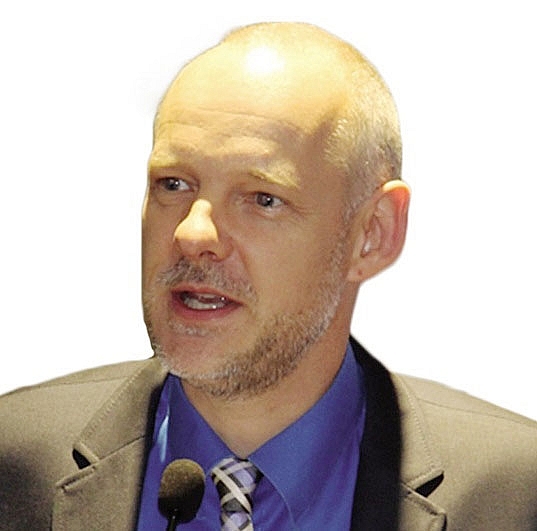
 Tag:
Tag:


















 Mobile Version
Mobile Version